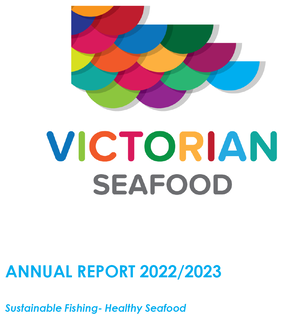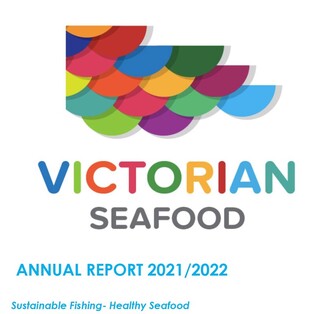PROJECTS
SIV encourages researchers and organisations to engage with Seafood Industry Victoria to collaborate on projects that benefit the commercial seafood industry and the seafood consuming public. Recent projects that SIV has delivered, collaborated on, or supported include the following:
Skills and workforce analysis for the Victorian seafood industry
This report reviewed the demand for occupations, education and training directed to meeting current workforce issues facing the Victorian seafood industry. The analysis provided guidance on strategies through a series of recommendations for future focus and funding, including:
- Contribution to the design of fit-for-purpose training and courses
- Creation of multi skilled qualifications
- Raising awareness of career pathways in seafood with a younger generation
- Supporting students visiting local innovators to see work opportunities first hand
- Incentivising local businesses to offer on-the-job training of practical skills
- Improving job matching services
Skills and workforce analysis for Seafood Industry Victoria
Southern Rock Lobster Code of Practice
This Code was developed by the Victorian Southern Rock Lobster fishery to outline best practice for the commercial sector. It brings together a range of legal requirements and voluntary measures and sits alongside legislation to further define and promote responsible management of the resource. Whilst the fishery prides itself on a long-standing history of striving for best practice fishing methods, we expect to see incremental improvement in areas covered by the Code of Practice, including product handling, reporting, by-catch management, interactions with protected species, waste/pollution and safety.
The final document can be viewed at:
Southern Rock Lobster Code of Practice
Victorian Aquaculture Strategy 2022 - 2027
Aquaculture production has recently overtaken wild catch fisheries globally and is set in Australia to become the largest seafood sector. The Victorian Aquaculture Strategy aims to capture the strategic priorities and issues that were raised in workshops led by the Victorian aquaculture industry with representatives from government and experts. Development of the strategy was supported by the Victorian Fisheries Authority (VFA). This strategic framework will continue to be adapted to reflect latest priorities for the industry. SIV will work with industry and the VFA to identify opportunities for specific projects that will deliver tangible benefit for aquaculture businesses looking to invest in growth of the sector in Victoria.
Victorian Seafood Supply Chain Analysis
This report addressed the impact/s of COVID-19 on the seafood supply chain, both domestically and internationally.
The project provided a high-level analysis of supply chain opportunities, challenges, constraints and risks associated with Victorian seafood businesses accessing markets. It also addressed the process to recovery and assessed the opportunities or constraints to new or existing markets.
The final report can be viewed at:
Victorian Seafood Supply Chain Analysis
Victorian Seafood Brand (Website and Social Media)
The Victorian Seafood brand aims to increase the visibility and awareness of Victorian seafood by producing online content with a distinct brand personality and tone of voice. This platform provides SIV with the ability to actively coordinate marketing and education campaigns to target domestic consumers with a willingness to pay for high quality seafood. We want Victorians to be mindful about what they buy, why they are buying it, where it comes from and who they are supporting through their purchase.
https://www.victorianseafood.com.au/
Victorian Seafood Consumer Survey
This important study provided insights to guide sophisticated and targeted consumer campaigns to promote and grow consumption of Victorian seafood, through understanding the location and nature of consumer demand through mapping of the demand profile. The survey results yielded considerable information including:
- how people learn about seafood,
- how they consume it,
- where they think it comes from,
- what factors are influential in their purchase and consumption patterns, and
- what tools might be effective in future education/promotion activities.
Victorian Seafood Consumer Survey
'Practicing Aquatic Animal Welfare' (FRDC 2019-023).
This FRDC funded research focuses on the obstacles to, and drivers of, positive practice change relating to aquatic animal welfare (AAW) in Australia’s wild-catch commercial fishing and finfish aquaculture sectors. It was conducted between December 2019 and March 2022 in response to growing societal expectations that production animals, including fish and crustaceans, be treated humanely and the need to understand how the Australian seafood industry can, and should, respond.
The final report can be viewed at:
https://www.frdc.com.au/project/2019-023
'Valuing Victoria's Wild-catch fisheries and aquaculture industries' (FRDC 2017-092).
To address a significant gap in knowledge, the project is designed to identify and measure the economic and social contributions that flow from Victoria’s professional fisheries (wild-catch and aquaculture) into regional and metropolitan communities. In the absence of such data, local professional fisheries have been unable to demonstrate the range and value of fisheries benefits to society’s well being, and thus gain visibility and support from the Victorian public, governments and other stakeholders and decision-makers. It has also meant there has been no information about the likely impacts of fisheries policy and management decisions on Victorian communities, or of potential opportunities for improving sustainable growth in fisheries.
‘Catch the Drift: Leadership and development training for the next generation in the commercial and aquaculture industry’ (FRDC 2016-401).
Catch the Drift is a new project focusing on the people in the Victorian seafood industry- building capacity, leadership skills and knowledge, ensuring future leaders of industry leaders are equipped, whether that be at the local, regional, state or national level. SIV are co-investigators on the project with Rural Training Initiatives.
‘Protect your catchment, protect your catch: a collaborative initiative to boost fishery productivity in Corner Inlet’ (FRDC 2016-254).
This project, led by Dr John Ford at Mezo Research, built upon the FRDC project 2013-021, which identified that the productivity of the Corner Inlet fishery is under threat from seagrass loss due to poor water quality flowing from the surrounding catchment. The project was successful in creating strong inter-industry connections within the catchment and worked to build momentum to improve catchment management, water quality and ultimately fish habitat. In November 2016, a showcase event, “Protect your catchment, protect your catch”, was held in Port Albert, bringing together the most important industries of the South Gippsland rural economy – farming, tourism and fishing - to convey the importance of the government making investment to improve water quality and protect fish habitat.
The final report can be viewed at:
https://www.frdc.com.au/project/2016-254
‘Sustainable Fishing Families: Developing industry human capital through health, wellbeing, safety and resilience’ (FRDC 2016-400).
This project, started in 2016, will provide rigorous research and critical national data on the mental health of commercial fishers, while also developing and piloting a practical program to address the specific health requirements of fishers and their families. Sustainable Fishing Families is an investment in the long term viability of the industry’s most valuable asset: the people. The project is led by Dr Tanya King at Deakin University, and Co-investigators include the National Centre for Farmer Health, University of Tasmania, and Exeter University.
The final report can be viewed at:
https://www.frdc.com.au/project/2016-400
'The social drivers and implications of an ecological risk assessment of both recreational and commercial fishing — A case study from Port Phillip Bay' (FRDC 2014/207).
The project was undertake to: understand the full range of issues underpinning resource sharing by commercial, recreational and other stakeholders in Port Phillip Bay fisheries; develop a framework for assessing the social and ecological issues in Port Phillip Bay fisheries; undertake a qualitative ecological risk assessment (ERA) of the Port Phillip Bay fishery, including both the commercial and recreational sectors; identify significant ecological risks to fisheries in Port Phillip Bay; and, make recommendations for improved cross-sectoral management of Port Phillip Bay fishery resources.
The final report can be viewed at:
http://www.frdc.com.au/Archived-Reports/FRDC%20Projects/2014-207-DLD.pdf
‘Optimising processes and policy to minimise business and operational impacts of seismic surveys on the fishing industry and oil and gas industry’ (FRDC 2013-209).
Finishing up in 2016, SIV was the principle investigator on this research project which made recommendations on how the fishing and oil and gas industries can work together in the planning future operations and exploration. The co-investigators included Ian Knuckey and Chris Calogeras, of Fishwell Consulting and C-AID consultants respectively.
The final report can be viewed at:
http://www.frdc.com.au/Archived-Reports/FRDC%20Projects/2013-209-DLD.pdf
MeetingS
BOARD MEETINGS
- Chair summaries for recent SIV Board meetings can be accessed via the links below.
Meeting Summary #202 - 22 June 2022
Meeting Summary #203 - 10 August 2022
Meeting Summary #204 - 2 September 2022
Meeting Summary #205 - 4 October 2022
Meeting Summary #206 - 16 November 2022
Meeting Summary #207 - 7 December 2022
Meeting Summary #208 - 23 February 2023
Meeting Summary #209 - 23 March 2023
Meeting Summary #210 - 3 May 2023
Meeting Summary #211 - 27 June 2023
Meeting Summary #212 - 16 August 2023
Meeting Summary #213 - 16 October 2023
Meeting Summary #214 - 30 November 2023
Meeting Summary #215 - 8 February 2024
Meeting Summary #216 - 2 May 2024
Meeting Summary #202 - 22 June 2022
Meeting Summary #203 - 10 August 2022
Meeting Summary #204 - 2 September 2022
Meeting Summary #205 - 4 October 2022
Meeting Summary #206 - 16 November 2022
Meeting Summary #207 - 7 December 2022
Meeting Summary #208 - 23 February 2023
Meeting Summary #209 - 23 March 2023
Meeting Summary #210 - 3 May 2023
Meeting Summary #211 - 27 June 2023
Meeting Summary #212 - 16 August 2023
Meeting Summary #213 - 16 October 2023
Meeting Summary #214 - 30 November 2023
Meeting Summary #215 - 8 February 2024
Meeting Summary #216 - 2 May 2024
COMMITTEE MEETINGS
Victorian Rock Lobster Committee
The Victorian Rock Lobster Committee (VRLC) has been established as an industry committee under Seafood Industry Victoria Inc. Members are eligible persons within their respective fishery (Western and Eastern Zones) with an affiliation with SIV. The primary responsibility of the VRLC is to provide advice to the SIV Board, Government Ministers, the Victorian Fisheries Authority and other stakeholders on matters pertaining to the management of the Victorian rock lobster industry. The VRLC also seeks to represent industry interests in response to matters impacting productivity of the fishery or the marine environment that supports rock lobster stocks.
Chair summaries for recent VRLC meetings can be accessed via the links below.
VRCL Meeting #1 - 2 September 2022
VRLC Meeting #2 - 29 September 2022
VRLC Meeting #3 - 4 November 2022
VRLC Meeting #4 - 1 December 2022
VRLC Meeting #5 - 15 December 2022
VRLC Meeting #6 - 18 May 2023
VRLC Meeting #7 - 28 August 2023
The Victorian Rock Lobster Committee (VRLC) has been established as an industry committee under Seafood Industry Victoria Inc. Members are eligible persons within their respective fishery (Western and Eastern Zones) with an affiliation with SIV. The primary responsibility of the VRLC is to provide advice to the SIV Board, Government Ministers, the Victorian Fisheries Authority and other stakeholders on matters pertaining to the management of the Victorian rock lobster industry. The VRLC also seeks to represent industry interests in response to matters impacting productivity of the fishery or the marine environment that supports rock lobster stocks.
Chair summaries for recent VRLC meetings can be accessed via the links below.
VRCL Meeting #1 - 2 September 2022
VRLC Meeting #2 - 29 September 2022
VRLC Meeting #3 - 4 November 2022
VRLC Meeting #4 - 1 December 2022
VRLC Meeting #5 - 15 December 2022
VRLC Meeting #6 - 18 May 2023
VRLC Meeting #7 - 28 August 2023
Proudly powered by Weebly

